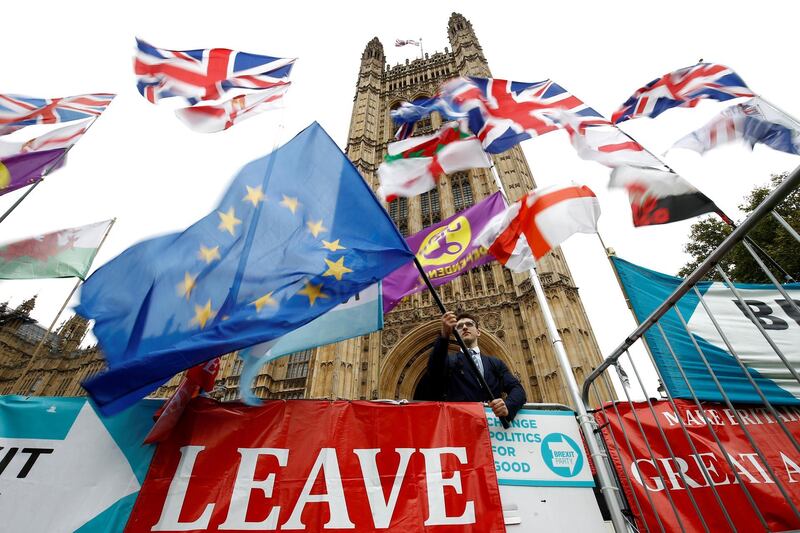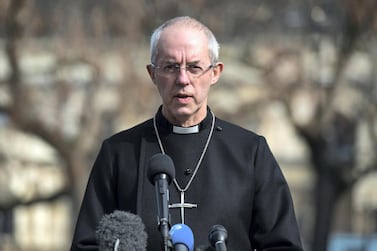The EU granted a request by the UK to extend the Brexit deadline by three months, moving the UK’s departure date to Friday, January 31, next year.
EU Council President Donald Tusk made the announcement on Monday after a meeting of ambassadors from the 27 other EU member states in Brussels.
Mr Tusk said the EU was offering a "flextension", meaning that the UK could leave before the deadline if a Brexit deal had been ratified.
The EU27 has agreed that it will accept the UK's request for a #Brexit flextension until 31 January 2020. The decision is expected to be formalised through a written procedure.
— Charles Michel (@eucopresident) October 28, 2019
The UK Prime Minister Boris Johnson will try to call a snap election on Monday afternoon in a bid to end the impasse.
However, the prime minister needs the backing of two-thirds of MPs' support for an early poll. He has said the election date should be December 12.
The UK's main opposition party, Labour, looks likely to abstain from the vote but two other opposition parties have indicated they could back the early election call.
The government is believed to be considering an option proposed by the Scottish National Party and the Liberal Democrats to hold an election on December 9.
France's President Emmanuel Macron was initially reluctant to grant the UK another extension.
But French objections were dropped after UK opposition parties hinted they could support a December poll.
"The prospect of elections has strengthened significantly over the weekend," a source close to Mr Macron told Reuters.
The European Parliament's Brexit Coordinator, Guy Verhofstadt, said he was relieved that "no one died in a ditch", referring to a speech by Mr Johnson last month in which he suggested he would rather be “dead in a ditch” than delay Brexit.
Relieved that finally no one died in a ditch. Whether the UK's democratic choice is revoke or an orderly withdraw, confirmed or not in a second referendum, the uncertainty of Brexit has gone on for far too long. This extra time must deliver a way forward.
— Guy Verhofstadt (@guyverhofstadt) October 28, 2019
Mr Johnson said it is Parliament’s fault, not his, that Britain will not be leaving as intended on October 31.
His spokesman, James Slack, said Mr Johnson secured “a great new deal, he set out a timetable that would have allowed the UK to leave on October 31 with that deal - and Parliament blocked it".
Mr Slack said the prime minister has not yet seen the EU letter confirming a Brexit delay.
But the German government welcomed the EU’s agreement, with spokesman Steffen Seibert calling it a “good solution".
Speaking in Berlin, Mr Seibert said it was “very positive” that the other 27 EU countries had shown unity on the issue.
He said “the ball now lies with Great Britain. And it’s important to use the additional time productively".
In London, Mayor Sadiq Khan also welcomed the decision, tweeting on Monday that the decision was positive for the UK and takes the “immediate risk of a catastrophic no-deal” Brexit off the table.
Mr Khan said the extension should be used for a public vote.
“It’s time to give the British public the final say on Brexit,” he said.
The delay reduces the risk of a damaging no-deal Brexit but prolongs uncertainty over how and when the UK will leave the EU.
The UK had already started its no-deal plans ahead of the scheduled leave date at the end of the month.
A motorway operation in Kent on the south-east coast of England began on Monday morning and was designed to keep traffic moving in case of disruption at the port of Dover.
One side of the M20 was restricted to lorries heading across the English Channel as part of Operation Brock.







